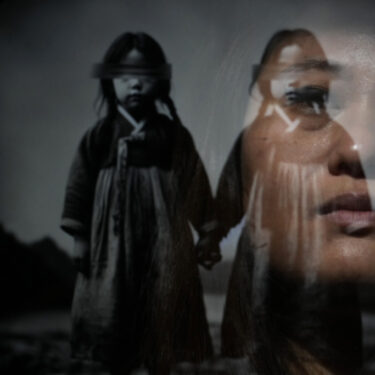Thousands of South Korean adoptees are looking to satisfy a raw, compelling urge that much of the world takes for granted: the search for identity. Like many of them, Rebecca Kimmel stumbled into a web of switched photos, made-up stories and false documents — all designed to erase the identity she desperately wants to find.
The story was made possible by South Korean-based reporter Kim Tong-hyung’s exceptional source development and relentless, decade-long pursuit of the truth. Kimmel got in touch with him years ago, after she read his stories about suspected fraud in South Korea’s adoption system.
Their first conversation over Zoom went on for several hours. Kimmel unpacked her lifelong doubts about the girl in her adoption file that didn’t look like her, how that drove an exhaustive search to find her true biological origins, her repeated false starts and the pain of being stymied at each step, and her growing sense of loss from living with an identity based on someone she wasn’t.
They met in person months later and Kim accompanied Kimmel on a visit to her adoption agency in Seoul. There, after spending hours but failing to find Kimmel’s real file, an adoption worker made a startling admission that child switching had been a common practice at adoption agencies during the adoption rush of the 1970s and `80s, and that birthed Kim’s years-long obsession with reporting on adoption fraud out of Korea.
He kept in touch with Kimmel for years and observed how her search efforts resulted in an unexpected reunion between people she’d never met — adoptee twin sisters Becca Webster and Dee Iraca in North Carolina and their aging Korean father. After discussing how to incorporate Kimmel’s unusual and complicated efforts to find her true biological origins, we concluded that a narrative-style story was the best way to handle it.
The judges were impressed by the narrative arc, economically and powerfully written, that conveyed Kimmel’s anger and frustration, and the poignant reunion of the twin sisters with their biological father.
The average read time for the story was 4 minutes and 40 seconds, an exceptional number for any AP content.
This was the third major story about the Korean adoption system. Since then, more than 70 adoptees have reached out to AP, asking for help or wanting to add their experiences to our reporting. We believe this project will, in the end, have an exceptional impact.
For a story that resonated deeply with adoptees who have been searching in vain for their birth families, Kim, Klug and Galofaro earn this week’s Best of the AP — First Winner.
Visit AP.org to request a trial subscription to AP’s video, photo and text services.
For breaking news, visit apnews.com.





